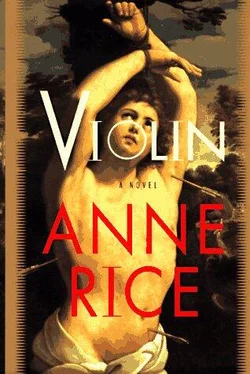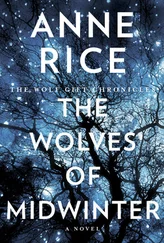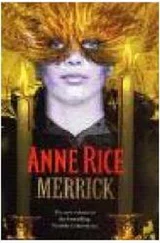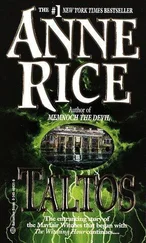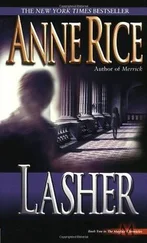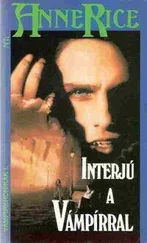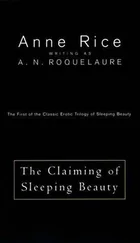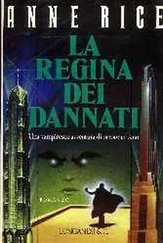The streets. Is this Vienna?
From somewhere he'd procured a greatcoat, and bandages for his hands. He was a secretive figure, clinging to the walls. The street was old and crooked.
O gentle whore, what do you think, I had some gold left. But the news had electrified Vienna. I had killed my father. I had killed my father.
This was the Graben, now gone in reality; I knew it by its twists and turns, the place where Mozart lived, this neighborhood of eternal liveliness by day. But this was night, late night. Stefan waited in the shadows until a man emerged, with a sudden eruption of noise, from a tavern.
He shut the door on the warm world within, so full of smoking pipes, and the smell of malt and coffee, and the sound of talk and laughter.
"Stefan!" he whispered. He crossed the street and took Stefan's arm. "Get out of Vienna. You are to be shot on sight. The Czar himself has given Metternich the written permission. The city's full of Russian soldiers."
"I know, Franz," said Stefan, crying like a child, "I know."
"And your hands," said the young man, "what's been done?"
"Oh, not enough, not nearly enough, they're bound and twisted and broken and not set, it's all done, it's finished." He stood still, looking up at the tiny strip of Heaven.
"Oh, Lord God, how could this happen, Franz, how? How could I have come to this when a year ago we were all in the ballrooin[ and we were playing and even the Maestro was there, saying he enjoyed watching the movement of our fingers! How!"
"Stefan, tell me," said the young man called Franz. "You didn't really kill him.
They lie, they paint a picture. Something happened, but Vera says that they have unjustly..."
Stefan couldn't answer. His eyes were squeezed shut, his mouth drawn back. He didn't dare to answer. He broke loose from his friend and ran, cloak billowing behind him, boots clattering on the rounded cobblestones.
He ran and he ran and we followed him, and he became tiny in the night, and the stars arched over all, and the city vanished.
This was a dark wood, but a young wood, tender, with small leafed trees, and crunching leaves beneath Stefan's boots. The Vienna Woods I knew so well from one college glimpse and so ma ny books and so much music. A town lay ahead, and down into the town Stefan crept, hugging the bloody filthy bandaged hands, grimacing now and then at the pain, but fighting it off; as he entered the main street and a small square. It was late, the shops were all shut up, and the little streets looked picture-book to me in their quaintness. He hurried on his errand. He found a small, gated courtyard, but there were no locks here, and unseen he came inside.
How miniature this rural architecture after the palaces in which we'd witnessed horrors.
In the cool night air, full of the scent of pines and sweet burning stoves, he looked up at a lighted window.
A strange singing came from within, an awful bawling singing, but very happy and full of glee. A deaf man singing.
I knew this place, I knew it from drawings, I knew it was a place where Beethoven had once lived and written, and as we drew closer now, I saw what Stefan saw, as he climbed the little steps-the Maestro inside, swaying at his desk, dipping his pen and wagging his head and stomping his foot, and scratching out the notes, delirious it seemed in his own precious and safe corner of the universe where sounds might be combined as those with ears would never recommend or even tolerate.
The great man's hair was soiled, shot through with gray I hadn't seen before, the pockmarked face was very red, but his expression was relaxed and pure, with no scowl for anyone. He rocked back and forth again; he wrote. He sang that yammering stomping song that surely confirmed a path for him.
Young Stefan came to the door, opened it and stepped inside, peering down on the Maestro, the bandaged hands behind his back, then coming forward, went on his knees at Beethoven's arm.
"Stefan!" he cried out, his voice rough and loud. "Stefan, what is it?"
Stefan bowed his head and broke into tears, and suddenly, not meaning to, he raised his reddened bandaged hand as if to reach out and touch the Maestro.
"Your hands!" the Maestro went frantic. He stood up, throwing over the ink as he reached about on his desk. The conversation book, no, the blackboard, that was what he looked for, the companions of his deaf years, through which he spoke to everyone.
But then he looked down in horror and saw that both of Stefan's hands were useless for a pen as the younger knelt there, stricken, pleading with shakes of his head and shudders for mercy.
"Stefan, your hands, what have they done to you, my Stefan!"
Stefan raised his hand for quiet, raised it, desperate. But it was too late. In his protective panic Beethoven had brought others running.
Stefan had to escape. He clutched the Maestro for one moment, kissing him hard on the mouth, and then went to a farther door just as the one beside him sprang open.
Once again, he fled, Beethoven roaring in pain.
A small room: a woman's bed.
Stefan lay curled up in his tight pants, and a clean shirt, his profile sunk into the pillow, mouth open, face wet but still.
She, a thick and girl-faced woman, squarish and not unlike myself but young, bound fresh bandages around his hands. She doted on him, his still countenance, the battered hands she held, scarcely able to avoid tears. A woman who loved him.
"You must get out of Vienna, Prince," she said in the German of the Viennese, smooth and cultured. "You have to!"
He didn't stir. His eyes let in a little light perhaps or only gave away a tiny bit of white, which looked like death itself, except he breathed.
"Stefan, listen to me!" She took the intimate turn. "They bury your father in state tomorrow. His body will rest in the Van Meck tomb, and do you know what they mean to do, they mean to bury the violin with it."
He opened his eyes first, staring at the candle behind her, staring at the terra-cotta dish in which it rested, the dish that had already caught a pool of wax. Then he looked at her, turning, the wooden headboard plain and thick behind him. Surely this was the poorest place to which he'd ever taken us. A simple place, perhaps over a shop.
His dull eyes looked at her. "Bury the violin. Berthe ... you said . . .
"Aye, until his murderer is found and they can take the Father's remains home to Russia. It is winter now; you know they cannot make the journey anyway to Moscow.
And Schlesinger, the merchant he has given them the money for the thing, in spite of this. You know they set a trap for you, they think you will come for it."
"That's stupid," said Stefan. "That's mad." He sat up, his knee rising, his stockinged foot pushing into the lumpy mattress. His hair fell down as it was now, satin, undone. "A trap for me! To bury the violin in a coffin with him!"
"Shhh, don't be such a fool. They think you will come to steal it before it is sealed up. If not, it remains in the grave until you come, and they pounce on you. Or forever it lies with your Father until such time as you are found and executed for your crime. It is a grim affair; your sister and brothers are distraught, and not all of them so cruel of heart towards you, by the way.”
"No..." he murmured, musing, remembering possibly his escape.
"Berthe!" he whispered.
"And from your father's brothers comes the vengeful speech these men, how they huff and puff that the violin shall be buried with him whom you killed, so that you may never, never play it again. They picture yo u, a fugitive, who would steal it from Schlesinger."
"I would," he whispered.
A noise disturbed them both. The door opened and a small round-faced man appeared, a stubby and chunky man in a black cape and the undeniable upper-crust linen. He looked Russian, this man, his cheeks so full, his eyes small. One could see the Russian of today in him. He carried a big black cloak over his arm, a fresh garment which he laid down now on a chair. It had a hood to it.
Читать дальше
